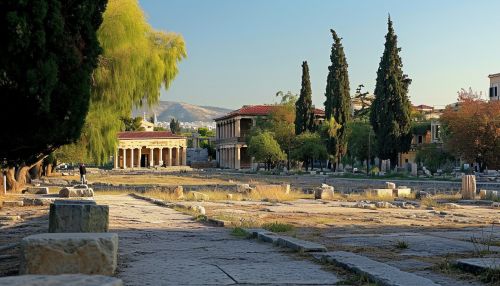Freedom of speech
Origins and Development
Freedom of speech, as a concept, has its roots in the ancient civilizations of Greece and Rome. The Athenian democratic principle of parrhesia and the Roman concept of libertas both advocated for the right of an individual to express their thoughts and opinions freely. However, these early notions of free speech were not absolute and were often subject to limitations and restrictions.


The modern understanding of freedom of speech developed during the Enlightenment period, with philosophers such as John Locke and Voltaire arguing for the importance of free and open discourse in society. This idea was further cemented in the 18th century with the American and French revolutions, both of which enshrined the right to freedom of speech in their respective constitutions.
Legal Protections
Freedom of speech is protected by law in many countries around the world, often as a fundamental right in a country's constitution. The First Amendment of the United States Constitution, for example, prohibits the government from making laws that restrict freedom of speech. Similarly, Article 10 of the European Convention on Human Rights provides the right to freedom of expression, subject to certain restrictions that are "in accordance with law" and "necessary in a democratic society".
Despite these legal protections, the application and interpretation of freedom of speech laws can vary significantly from one jurisdiction to another. Some countries, such as the United States, adopt a more absolutist approach to free speech, while others, like Germany and France, have laws prohibiting hate speech and Holocaust denial.
Philosophical Perspectives
From a philosophical perspective, freedom of speech is often viewed as a fundamental aspect of human autonomy and dignity. It is seen as a necessary condition for the realization of other human rights, including the right to freedom of thought and conscience. Philosophers such as John Stuart Mill have argued that free speech is essential for the discovery of truth, the promotion of individual self-development, and the functioning of a democratic society.
However, the right to freedom of speech is not absolute and is often balanced against other rights and values, such as the right to privacy, the right to reputation, and the principle of non-discrimination. This balancing act often leads to debates and controversies over the limits of free speech, particularly in relation to issues such as hate speech, defamation, and obscenity.
Freedom of Speech in the Digital Age
The advent of the internet and digital technologies has significantly transformed the landscape of free speech. On one hand, the internet has been hailed as a democratizing force that has expanded the opportunities for free speech, enabling individuals to express their views and share information on a global scale. On the other hand, the internet has also raised new challenges for freedom of speech, including issues related to online censorship, misinformation, and the spread of harmful content.


In response to these challenges, many countries have introduced laws and regulations aimed at governing online speech. These include laws against online hate speech, cyberbullying, and fake news. However, these laws have also sparked debates over their impact on freedom of speech, with critics arguing that they may be used as a tool for censorship and control of information.
